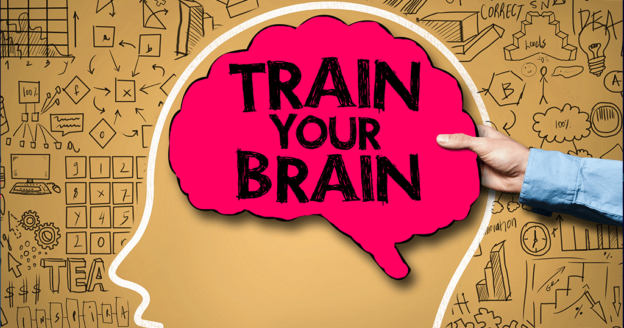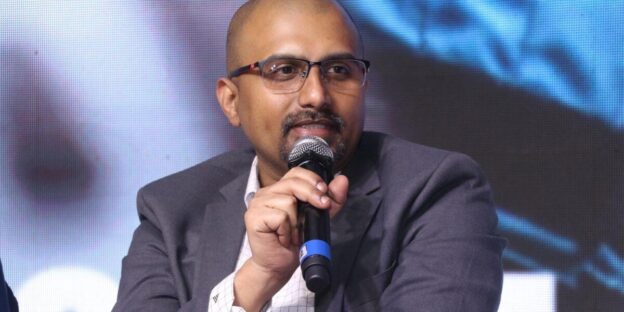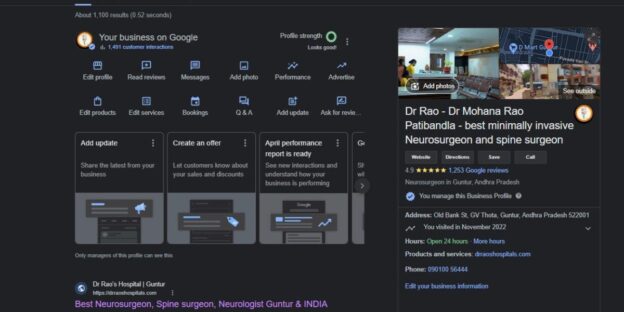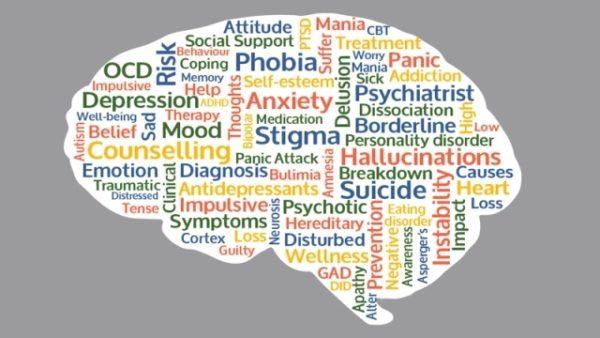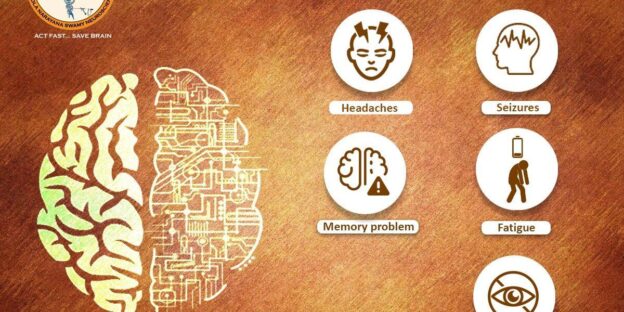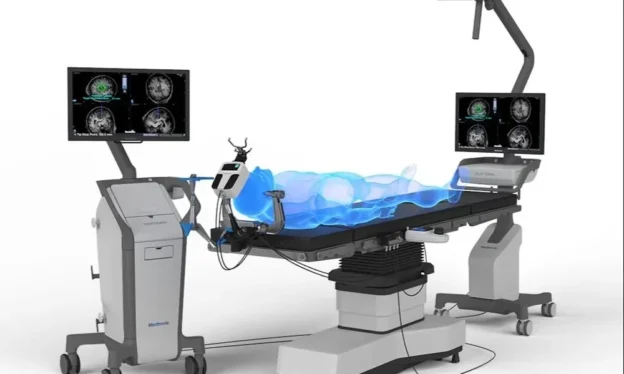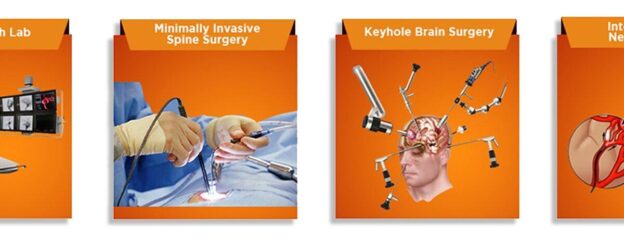Unlocking the Gut-Brain Axis: Enhancing Brain Function with Dr. Rao
The Connection Between Gut Health and Brain Function: Exploring the Gut-Brain Axis
Explore the fascinating link between gut health and brain function. Discover expert insights from Dr. Rao, the top neurosurgeon and spine surgeon, on optimizing the gut-brain axis for enhanced cognitive performance and overall well-being.
Introduction:
The human body is a complex and interconnected system where various organs and systems communicate and influence each other. One fascinating connection recently gained significant attention is the relationship between gut health and brain function. In this blog, we will delve into the intricate network known as the gut-brain axis and explore how the health of our gut impacts our cognitive function. We are fortunate to have the expertise of Dr. Rao, the best neurosurgeon and spine surgeon in Guntur and India, who practices at Dr. Rao’s hospital, the leading neurosurgery and spine surgery hospital in Guntur and India. Together, we will uncover the fascinating link between the gut and the brain.
Understanding the Gut-Brain Axis:
The gut-brain axis refers to the bidirectional communication between the gut and the brain. It involves a complex network of biochemical signaling and neural pathways that allow constant communication between them. The gut, often called the “second brain,” houses trillions of bacteria that play a vital role in digestion, nutrient absorption, and immune function. These bacteria produce neurotransmitters and other chemical messengers that can influence brain function and behavior.
Expert Insights from Dr. Rao:
As an expert in neurosurgery and spine surgery, Dr. Rao recognizes the significance of the gut-brain axis in maintaining optimal brain health. Dr. Rao’s hospital, renowned for its expertise, takes a holistic approach to patient care, considering the intricate interplay between various bodily systems, including the gut and the brain.
The Gut-Brain Connection and Cognitive Function:
Microbiome and Mood: The gut microbiome produces neurotransmitters like serotonin and dopamine, which regulate mood and emotions. An imbalance in gut bacteria can impact mental well-being and contribute to anxiety and depression.
Gut Permeability and Inflammation: A compromised gut barrier can increase permeability, allowing harmful substances to enter the bloodstream. This can trigger inflammation, linked to cognitive decline and neurodegenerative diseases.
Neurotransmitter Production: Gut bacteria produce various neurotransmitters that play a role in brain function. For example, certain bacteria produce gamma-aminobutyric acid (GABA), which has calming effects on the brain and helps regulate anxiety.
Immune System Interaction: The gut and the brain have a close relationship through the immune system. Immune cells in the gut can release molecules that affect brain function, contributing to conditions such as brain fog and cognitive impairment.
Nutrient Absorption: The gut absorbs essential nutrients needed for optimal brain function. Imbalances in the gut microbiome can impair nutrient absorption, potentially impacting cognitive performance.
Improving Gut Health for Better Brain Function:
Probiotics and Prebiotics: Incorporate probiotic-rich foods like yogurt, kefir, sauerkraut, and kimchi into your diet. These foods introduce beneficial bacteria to the gut. Additionally, consume prebiotic foods like bananas, onions, garlic, and whole grains to nourish existing gut bacteria.
Fiber-Rich Diet: Increase your fiber intake from fruits, vegetables, legumes, and whole grains. Fiber supports a healthy gut environment and promotes the growth of beneficial bacteria.
Reduce Sugar and Processed Foods: Limit the consumption of sugary foods and processed snacks, as they can disrupt the balance of gut bacteria and contribute to inflammation.
Stay Hydrated: Drink adequate water daily to support digestion and maintain a healthy gut.
Manage Stress: Chronic stress can negatively impact gut health. Engage in stress-reducing activities like meditation, yoga, or deep breathing exercises to promote a healthy gut and improve brain function.
Regular Exercise: Engage in regular physical activity, which can enhance gut motility, reduce inflammation, and support a diverse gut microbiome.
Get Sufficient Sleep: Prioritize quality sleep as it is vital in maintaining a healthy gut-brain axis. Aim for 7-9 hours of uninterrupted sleep each night.
Minimize Antibiotic Use: While antibiotics are essential in certain situations, excessive use can disrupt the gut microbiome. Use antibiotics only when necessary, and work with your healthcare provider to promote gut health during and after antibiotic treatment.
Manage Chronic Conditions: Chronic conditions like irritable bowel syndrome (IBS) or inflammatory bowel disease (IBD) can affect gut health. Seek medical guidance from specialists like Dr. Rao, who can provide comprehensive care for these conditions.
Stay Hygienic: Practice good hygiene, such as washing hands before meals and adequately handling and preparing food, to prevent ingesting harmful bacteria that may affect gut health.
Dr. Rao’s Expertise:
Dr. Rao, the best neurosurgeon and spine surgeon in Guntur and India, recognizes the profound impact of gut health on brain function. At Dr. Rao’s hospital, known for its excellence in neurosurgery and spine surgery, he emphasizes the importance of a holistic approach to patient care, considering the gut-brain connection in promoting optimal brain health.
Conclusion:
The intricate relationship between gut health and brain function highlights the importance of maintaining a healthy gut-brain axis. We can enhance cognitive function and support overall brain health by prioritizing gut health through proper nutrition, exercise, stress management, and other lifestyle factors. Dr. Rao’s expertise at Dr. Rao’s hospital further reinforces the significance of addressing the gut-brain connection in providing comprehensive healthcare.
Tags: gut health, brain function, gut-brain axis, neurosurgery, spine surgery, Dr. Rao, Dr. Rao’s hospital, cognitive function, brain health, gut microbiome, neurotransmitters, inflammation, immune system, probiotics, prebiotics, fiber, stress management, exercise, sleep, holistic healthcare.




